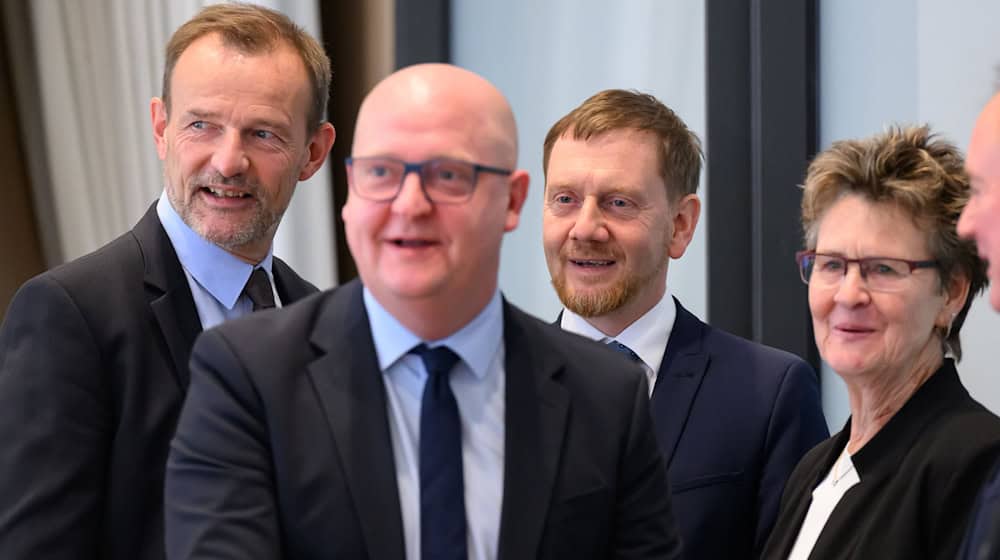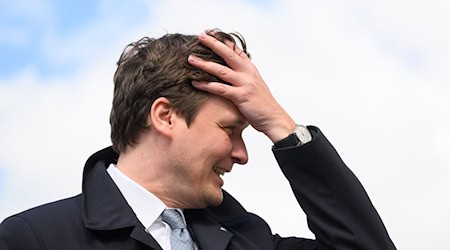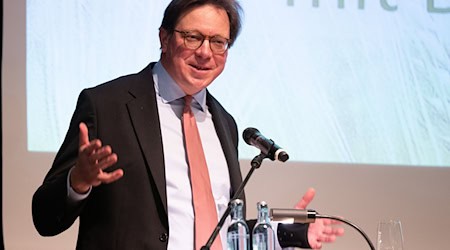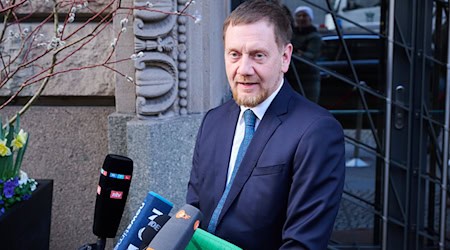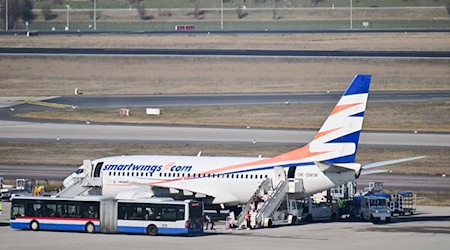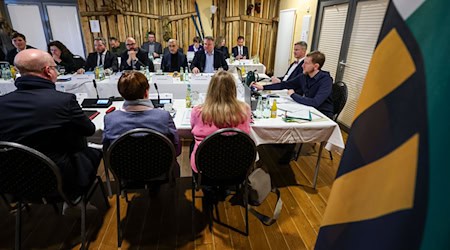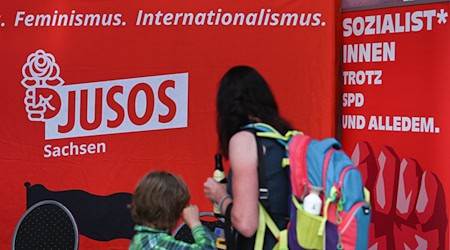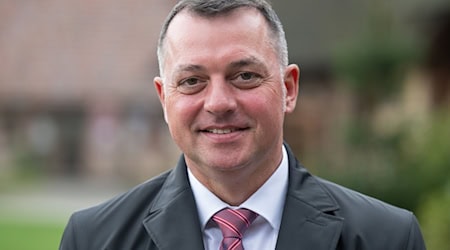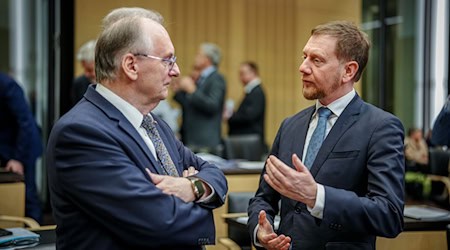After just under two hours, the first round of exploratory talks between the CDU, BSW and SPD for a so-called Brombeer coalition came to an end. Afterwards, Minister President Michael Kretschmer (CDU) emphasized the open outcome of the government formation. "It is not clear whether the whole thing will lead to a government in the end," he said in the afternoon.
"We have very strenuous and difficult talks ahead of us." However, he said he was motivated by the fact that women and men were meeting who wanted to make a difference for their home in Saxony.
BSW chairwoman Sabine Zimmermann was more optimistic. "I am confident that we will manage this," she said before the talks began. She added that we are already on the right track, especially when it comes to education and health. "But of course we still have points that have been disputed," she added. We have to negotiate hard on these issues, which the BSW will do.
Despite their differences, the three parties share "a common sense of responsibility", said SPD state chairman Henning Homann. During the talks to get to know each other so far, there had been "tough discussions on the matter". However, it was clear that everyone was striving for honest compromises.
SPD criticizes Wagenknecht's interference as "Punch and Judy show"
With regard to the role of BSW national chairwoman Sahra Wagenknecht, Kretschmer said: "I am sure that we are going our Saxon way here." He said that he was experiencing "constructive, interested people who want to make a difference" at the BSW in Saxony. Criticism came from the SPD, however. "The Punch and Judy show that Sahra Wagenknecht is putting on is damaging the formation of a government in Saxony," said Homann. He could only recommend that she stop.
Zimmermann emphasized on Tuesday that the BSW in Saxony had not coordinated with Wagenknecht. There was no dedicated line with the federal chairwoman. Instead, she spoke of an exchange with the state association in Thuringia, where a coalition with the CDU and SPD is also currently being negotiated, and the federal party.
Wagenknecht has called for a differentiation from CDU leader Friedrich Merz's course on Ukraine policy in the event of possible coalition formations of the BSW in Thuringia and Saxony. "After Friedrich Merz's appalling speech in the Bundestag this week, in which he effectively called for Germany to go to war against Russia, we can only enter into coalitions with his party if the state government clearly distances itself from such positions," the BSW federal chairwoman told Der Spiegel (Sunday).
Ukraine an important issue for BSW
There will be a round of exploratory talks on the still contentious issue of Ukraine, Zimmermann said. It is not yet possible to say how this will turn out. According to Kretschmer, the different positions are on the table. It had been made clear "what the foundations are for us". Further talks could be held along these lines.
For the BSW, peace policy is a very important issue, said SPD parliamentary group leader Dirk Panter. "We respect that, but of course we also have a clear stance on the issue."
Investigation begins after introductory talks
The CDU, BSW and SPD met on Tuesday for the first round of exploratory talks for a joint coalition. Successful exploratory talks would be followed by coalition negotiations.
There had previously been several introductory talks, which resulted in a position paper. In it, the potential partners had set out a whole range of common issues - for example in education policy, health and care or reducing the burden on agriculture.
So far, some points are still controversial. These include the creation of a Saxon border police force, which is supported by the CDU. The SPD is pushing for more investment in education and infrastructure. For the BSW, peace policy remains the central issue in the exploratory talks.
In the state elections on September 1, the CDU was the strongest party with 31.9% of the vote, ahead of the AfD (30.6%). As the CDU categorically rules out an alliance with the AfD and the Left Party, only an alliance between the CDU, BSW (11.8%) and SPD (7.3%) is possible for a majority government. A continuation of the old coalition of CDU, Greens (5.1 percent) and SPD is not enough.
Copyright 2024, dpa (www.dpa.de). All rights reserved

